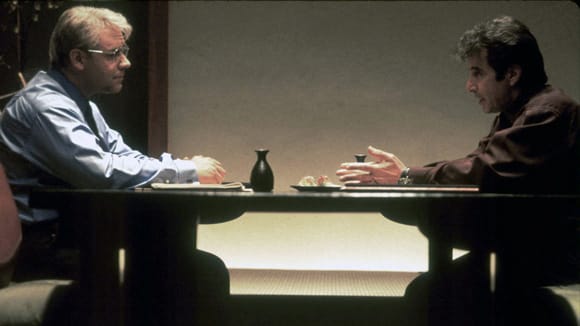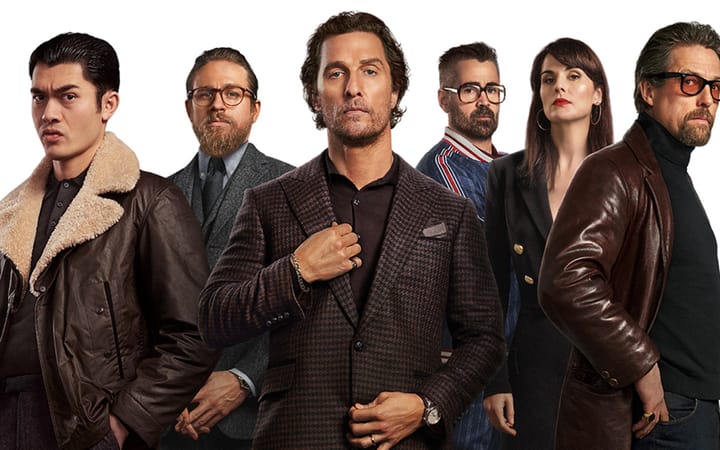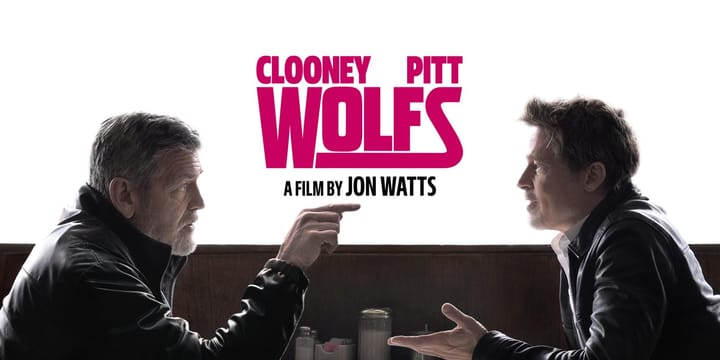Confronting Responsibility

I recently re-watched The Insider directed by Michael Mann, written by Eric Roth and starting Al Pacino and Russel Crowe. It's about a 60 Minutes producer trying to convince a whistleblower, under threat from his former employer, to expose secrets about the tobacco industry in an on-air interview with Mike Wallace.
The passing of Christopher Plummer put it back on my radar because it was my introduction to him (he plays Mike Wallace) and his instant stage (or screen) presence. It was the first time I began to understand the concept of 'presence' with an actor and the gratify experience from that feeling that I remember to this day.
Upon re-watching though, I realized how amazing all the performances are in this film. This is one of Pacino’s most understated performances and one of Crowe’s best. But it’s not just the performances that make this a great film, but the layered story that balances the pull of the dueling morality of responsibility.
It’s a remarkable take on the idea of the choices we are all confronted with throughout our lives when moral instincts clash against one another. The storytellers use a complex story to explore a complex idea, with near flawless execution, using each other to stay grounded yet emotionally and narratively dramatic.
The main character Jeffery Wigand (Crowe) is torn between telling the truth to expose fraud and keeping quiet to protect his family. Lowel Bergman (Pacino) battles between pushing people to publicly share secret information and the fallout from that push.
But the struggle is not limited to just the main two characters. Mike Wallace (Plummer) battles between his journalistic integrity and the potential legacy of causing the downfall of his employer, the CBS Network. And Wigand’s wife (Diane Venora) has to choose between staying true to her vow to support her husband or remove her children from a dangerous situation.
These choices come down to one’s priorities of responsibility. This particularly stuck out more to me this time is being a new father myself. Watching Wigand torture over his choices was even more palpable than in past viewings. What is so difficult for his options aren’t a clear right and wrong, but a decision weighed between self-preservation or moral integrity.
What lists higher in your priority stack of responsibility?
That is what sets this film apart from typical ‘based on true story’ films. It found a deeper meaning and conflict apart from the action of the story it is historically based on. What is exposed and the chain of events are less relevant than what effect this all has on the people involved. At first, it is mostly just Wigand with something to lose, but as the story progresses, everyone must make a decision with conflicting moral judgements.
It is riveting and eye-opening.
One draw back from this approach is it inherently reduces the pure emotional connection to a single character. But the story makes up for it by effectively demonstrating the shared experience of the burden of responsibility. It’s subtle in its messaging, while making the intended message clear.
We all feel it. We all care for something with a level of burden of its keep and wellbeing, with the inherent need to have meaning to this responsibility. The escalated conflict arises when priorities of equal level of importance’s such as these, clash. You are left with a difficult, emotionally tortuous decision with no easy answer.
Even if one seems more obvious.
When I watched The Insider in the past when I was of more idealistic fervor, it seemed more apparent for Jeffery Wigand to take it to the evil, corrupt men and corporation. But now I have a new sense of empathy for him, his character, and his options. As you grow older, your life and priority stack evolves, and your responsibilities adjust accordingly.
This is the point of the Mike Wallace storyline. He directly addresses it, saying a man of his age considers things differently. It is poignant and direct, encapsulating the difficult dichotomy in the story without being on-the-nose. But also isn’t the solution to the story or a justification for any of the characters’ choices. It’s simply the truth of the story and of us as human.
This film makes that connection and reenforces it. Many stories, be it film, TV, books, present struggles in black & white and focus struggles on one character (which can still have emotional connection). *The Insider* though, shares and uses the conflicts of multiple characters, as they don’t live in a vacuum. They are not there to serve the protagonist’s story, but to affect it within their own personal needs and struggles.
These characters are all conflicted by choices that don’t have clear answers, at least from their perspective. Their decision comes down to courage. Either find the courage to either follow their conscience by putting themselves, and maybe someone/something close to them, in danger or swallow your pride to protect that someone/something.
But while their struggles manifest, they all continue to work and tend to other areas of their lives and profession, separate from but affected by the main story line. From Lowel Bergman contenting to search out and produce other stories, to Wigand shifting careers, becoming a high-school science teacher, to Mike Wallace enjoying his comfortable elite lifestyle.
It all adds up to a film that efficiently and effectively resembles real life, while dramatizing it with all the available tools and skills of its creative team. They’ve created a story that drives home a message and connection in a subtle but compelling way. While it’s a less remembered film from its day, it still holds up, just like Christopher Plummer’s screen presence and is worth a watch.





Comments ()